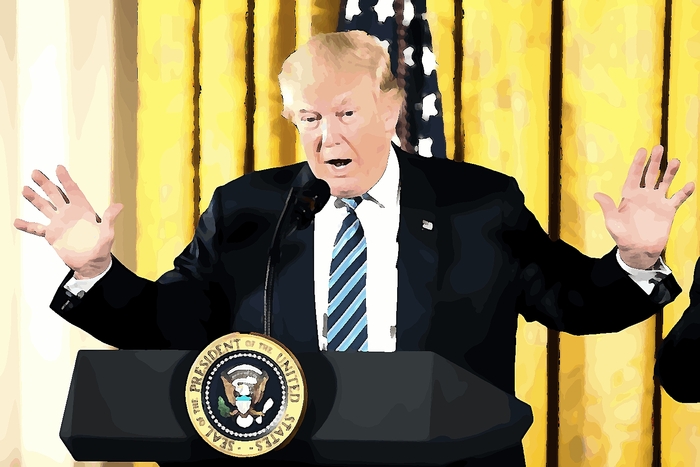
WASHINGTON - The House Armed Services Committee has moved toward nullifying a 30-year-old nuclear-arms-control treaty with Russia, endorsing a measure that would entrust President Donald Trump to decide whether the United States should scrap the deal.
The Republican-led measure, which was added around midnight Thursday to a draft of next year's defense spending bill, states that the United States will no longer consider the treaty binding without White House verification of Russia's full compliance.
Though it is largely symbolic, as there are no related provisions in the defense bill that would put the United States in violation of the treaty, it marks Washington's latest attempt, as sponsor Rep. Mike Gallagher, R-Wis., put it, to "nudge Russia into compliance" with a Cold War-era agreement that Moscow is believed to have violated for years. Alternatively, vacating the treaty could free the United States to develop weapons to deter new nuclear threats from China.
"You cannot have a treaty with oneself, and that's the situation we're in," said Rep. Michael Turner, R-Ohio, offering his support for the measure. "We need to recognize reality."
The Intermediate-Range Nuclear Forces Treaty of 1987 has been at the forefront of a long-running policy fight between those who believe Cold War denuclearization pacts ought to be updated and preserved, and those who put more faith in nuclear deterrence to keep aggressor nations at bay.
Lawmakers shied away from including a similar measure in last year's defense bill. It would have declared the INF Treaty null and void while introducing new research-and-development funds for a ground-based cruise-missile system that, if tested, would violate the agreement.
By reintroducing the measure to render the INF defunct and pump more money into research, the House is signaling that the campaign against arms-control treaties is accelerating, some experts said.
"We are in a new nuclear-arms race, and this is part of the skirmishing," said Joe Cirincione, president of the Plowshares Fund, which is focused on preventing nuclear proliferation.
Trump has made his position clear: If there are to be nuclear weapons in the world, he wants to have the most. Earlier this year, the Pentagon abandoned Obama administration plans for nuclear-arms reduction.
The Armed Services Committee's Democrats argued that further jeopardizing the international framework of arms-control treaties would not help the United States mount a stronger nuclear posture. Defense Secretary Jim Mattis "deemed it beneficial to U.S. national security to remain in the treaty," said Rep. John Garamendi, D-Calif., suggesting there were other ways - including sanctions - to punish Russia for violations while remaining in the INF treaty and "maintain[ing] the high ground."
The treaty precludes the United States and Russia from deploying any intermediate-range missiles, though Russia is suspected of disregarding those restrictions and China, the emerging adversary, is not limited by them.
And although diplomatic power brokers want to preserve the pact, the military is growing increasingly comfortable with - and perhaps even desirous of - a world in which the treaty no longer exists.
"The INF Treaty today unfairly puts the United States at a disadvantage and places our forces at risk because China is not a signatory," Adm. Phil Davidson, the incoming commander of U.S. Pacific Command, said during his confirmation hearing last month. "The absence of the INF Treaty would provide additional options to counter China's existing missile capabilities."


 Contact The Editor
Contact The Editor
 Articles By This Author
Articles By This Author